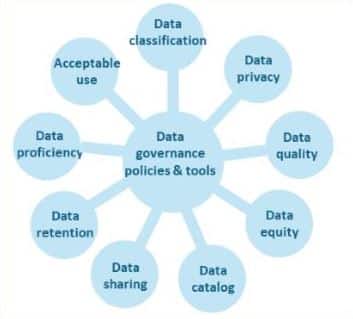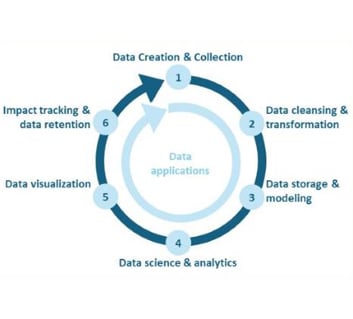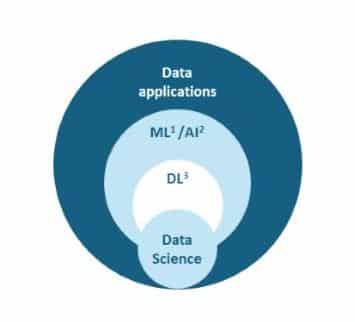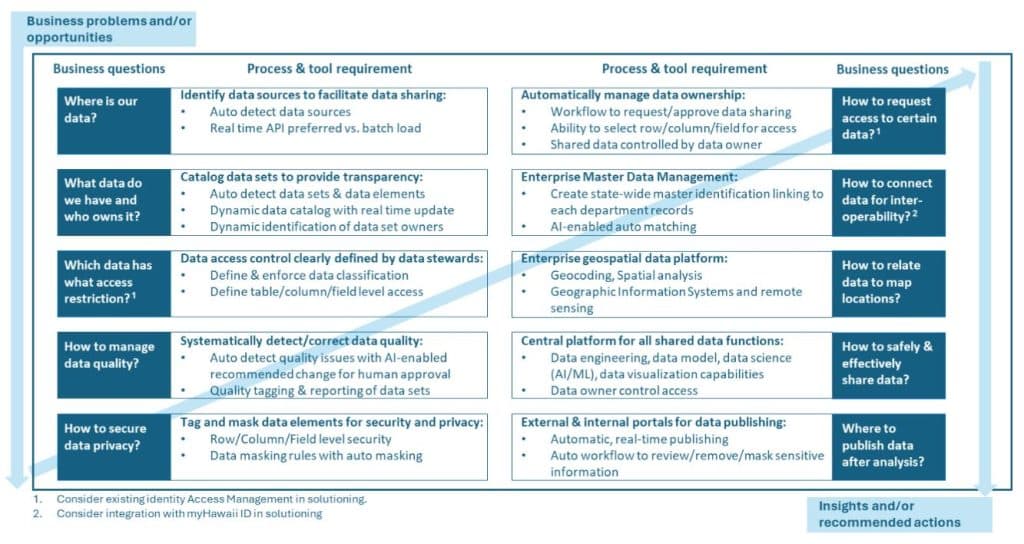State Data Office Home Page
Cultivate a data-driven, impact-focused, and citizen-centric culture to promote data sharing and integration, privacy protection, evidence based policy making, and responsible use of data and AI.
Learn MoreData and AI Guiding Principles
Data and AI Strategy
Vision
To drive trust, transparency, citizen satisfaction, and innovation by improving security, quality, accessibility, accountability of data and AI.
Mission
Cultivate a data-driven, impact-focused, and citizen-centric culture to promote data sharing and integration, privacy protection, evidence-based policy making, and responsible use of data and AI
Goals
Objectives
Protect privacy, ensure security and compliance
- Create data classification and masking standards for all data and AI use
- Protect data privacy according to Federal and State laws & regulations
Protect privacy, ensure security and compliance
- Establish standards, procedures and tools to manage and improve data quality
- Define data and AI governance according to data quality to promote trust
Promote accessibility and inter-operability
- Catalog all state data and integrate master data to enable citizen-centric solutions
- Establish data sharing standards and recommend tools to improve inter-operability
Drive accountability and transparency
- Identify owners of data set and AI use cases with clearly defined responsibilities
- Update open data standards to ensure governance & transparency in data & AI use
Ensure equity and ethical responsible use of data & AI
- Build data and AI governance framework to ensure equity throughout their lifecylce
- Create auditing mechanism to ensure equitable and ethical use in data and AI
Governance Framework
Clear ownership and responsibilities at state, department, and data set levels will ensure proper governance for trusted and sustainable data and AI use.
Owners
State-wide rules:
- State-wide Data Task Force (with inputs from departments)
Department/Division/County1 Specific rules:
- Department leads
- Department legal
- Department data
Dataset specific rules:
- Department/Division data owners (data stewards)
Responsibilities
State-wide standards/guidelines:
- Data classification standards
- Data privacy & confidentiality standards2
- Data quality standards
- Data equity standards
- Data catalog standards
- Data sharing standards
- Data retention standards
- Data proficiency training
- Acceptable use of data in AI
- Open data policy
- Data glossary
Ensure departmental level governance:
- Data steward identification
- Data classification setup
- Data privacy/confidentiality2 setup
- Open data sets identification
- Data catalog for departmental data sets and owners
- Data retention requirements
Implement data set level governance:
- Data set access control rules
- Data anonymization or aggregation as necessary for open data sets
- Ensure equity and privacy in data and AI use case implementation
- Including counties – facilitate vertical collaboration between state agencies and counties
- What fields can/can’t be share with compliance/laws clearly identified
Scope of Work
Driven by use case, data standards guide data lifecycle management to continuously create measurable impacts through data applications including AI.

Create data policies & Standards
Establish Policies, procedures and processes to ensures the security, integrity and accuracy of data.

Apply to data lifecycle management
Apply data standards and polices throughout the data life cycle, while data application tools will support every step in this lifecycle.

Create impacts using data applications
Create impacts by use case through data insights, recommended actions, automated processes, or generated contents.
Process and tool requirements
Business use cases and user questions determine data processes and tools to create insights and recommend actions as needed.

Background
ACT167 : ‘The legislature finds that it is in the State’s interest to increase access to data maintained by and available from state agencies, as such data can inform public policy, stimulate innovation within and outside government, encourage public engagement, and enhance transparency. This data can also spur economic development and produce new and innovative resources and services that benefit state employees, individual citizens, and businesses. The efficient integration, management, governance, and sharing of data can greatly improve state programs and the delivery of services to the State’s citizens. Therefore, unless expressly prohibited by law or regulation, it is vitally important that data held by state agencies be made readily available to other state agencies with a minimum of administrative obstacles so that data shared across agencies contributes to the effective, efficient, and transparent delivery of information resources and services. It is equally vital that state agencies make reasonable efforts to provide public access to this data, unless expressly prohibited by law or regulation.’
‘The purpose of this Act is to establish within the office of enterprise technology services a chief data officer and a data task force to develop, implement, and manage statewide data policies, procedures, and standards.’
ACT 167 section 27-44 : ‘The Chief Data Officer shall use the state information assets and analytics to research and recommend processes and tools to improve inter-departmental and intra-departmental decision making and reporting.’
